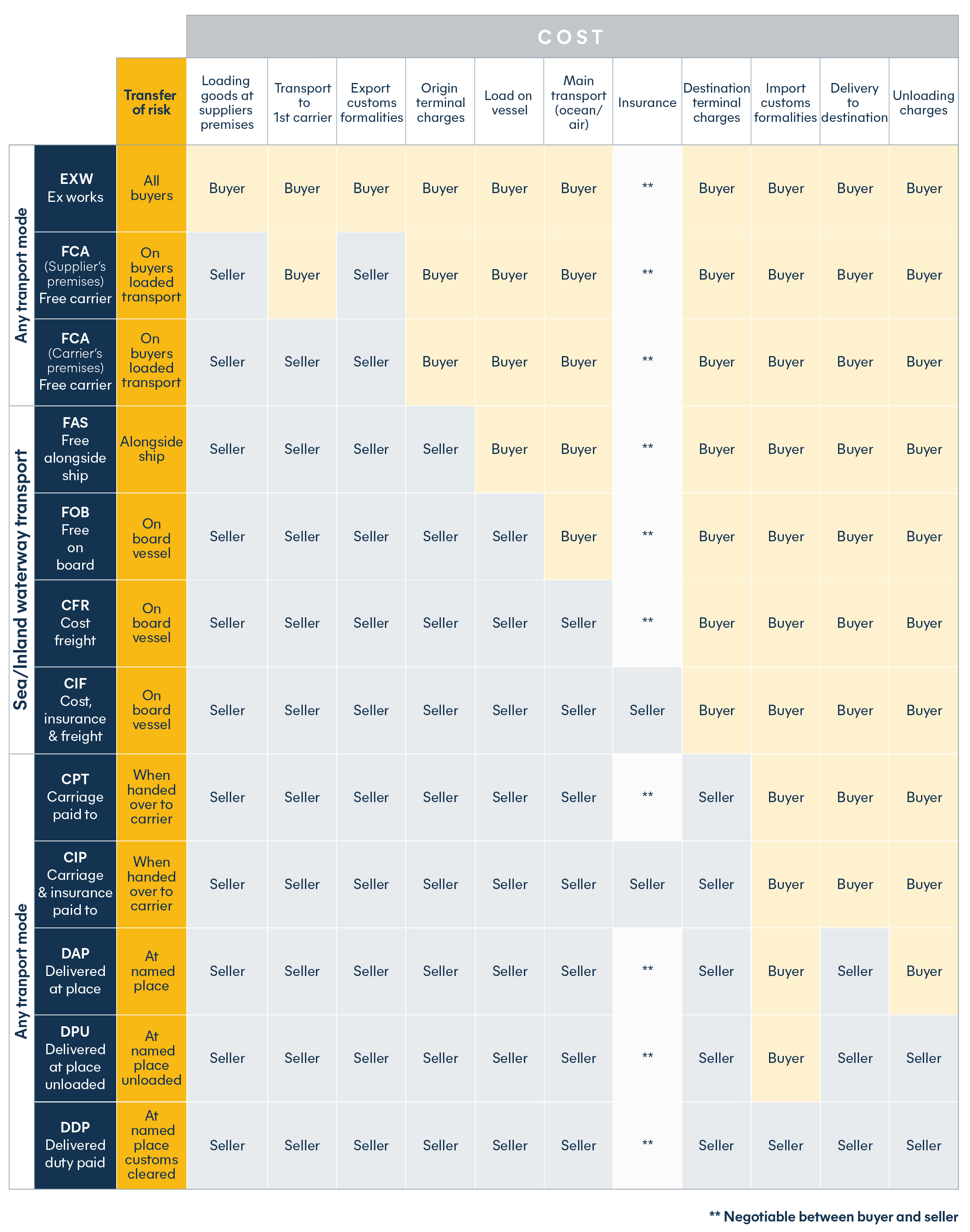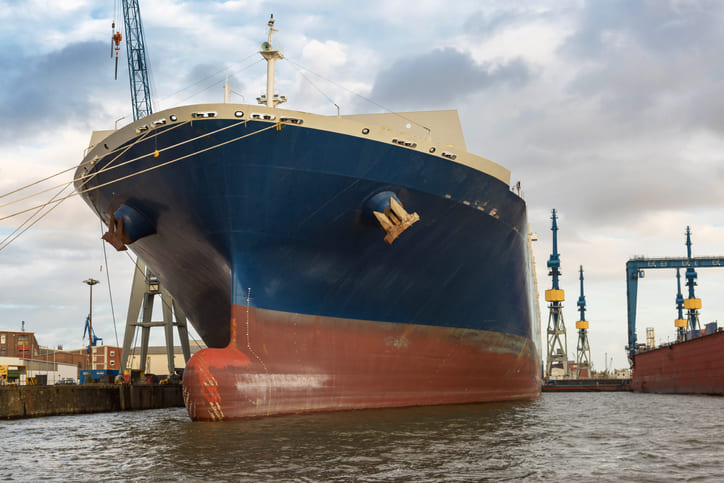Incoterms®, summarized
Incoterms® (less of a mouthful ‘International Commercial Terms’) are a specific and universal set of rules defined by the International Chamber of Commerce (ICC) for global shipping. In short, Incoterms® 2020 assign specific responsibilities to either the seller or the buyer when goods and traded and transported. They keep who does what, and all of the many legal obligations clear for everyone involved.
This includes who covers the costs and risk at the different stages of shipping, who is responsible for organizing and managing those stages, and who’s taking charge of the paperwork. In essence, there are three overarching responsibilities covered:
1. Transfer of risk
2. Transfer of cost
3. Distinct obligations of buyer and seller
Understanding Incoterms®
Incoterms® are written as three letter abbreviations based on the moment that cargo risk is transferred from seller to buyer. For example, FOB (Free on Board) is the Incoterm® that indicates risk will be passed over to the buyer once goods have been loaded onboard a vessel.
Our Incoterm® table below summarizes the responsibility allocation of each Incoterm®.

For a more detailed explanation of Incoterms® and how they work in practice, our guide to Incoterms® 2020 that we released previously on our blog is a valuable read. New Incoterm® rules are released once every decade, so our guide also highlights the most important changes that came into effect on the 1st of January 2020.
The complete Incoterm® rules 2020 can be obtained from the ICC
Why are Incoterms® so important to us?
Incoterms® are vital information for any buyers and sellers of goods being shipped, but also to freight forwarders and everyone else involved in the shipping process. For us at Hillebrand, Incoterms® clarify who controls and pays for each of the various steps during transport, and determines who the decision maker is between buyer and seller.
Incoterms® should be agreed upon from the very start, in order for us to provide accurate quotes and commence the shipping process without misunderstandings. An EXW or Ex Works quote if you prefer, is clear and simple, as the buyer assumes the costs and liability of the cargo from purchase and collection at origin to delivery at destination. For other incoterms where the responsibilities are split, it’s important to be aware of exactly where they switch because the shipping quote you ask for under those terms will only cover part of the journey. The part they cover also depends on whether you are asking as a buyer or seller.
FOB terms for example. If you are the seller, you’ll be paying for and liable for, the product up to the point at which it loads onto the vessel at port of exit. This is what we’ll quote you for and it’ll include things like transport to port, documentation, customs clearance and insurance. The buyers FOB quote will start with the shipping freight rate as their liability begins once the goods are on-board the vessel and en route. It’ll cover everything up to delivery too. Getting the incoterm wrong can really cause an issue for all parties involved.
Why are Incoterms® so important to you?
Incoterms® are fundamental to an efficient container shipping and freight management workflow. Without them, there would simply be too much confusion and hold ups while the buyer and seller figure out who’s supposed to take charge of what. Incoterms® don’t only streamline task allocation and simplify management, but also allow smooth resolutions of potential issues. With Incoterms® agreed upon from the very beginning, both parties are aware at what point the responsibility of loss or damage is theirs to cover.
“Because Incoterms® help importers and exporters around the world to understand their responsibilities and avoid costly misunderstandings, Incoterms® form the language of international sales transactions.”
John W.H. Denton AO, ICC Secretary General on the release of Incoterms® 2020

.png?sfvrsn=8b96de7e_1)



